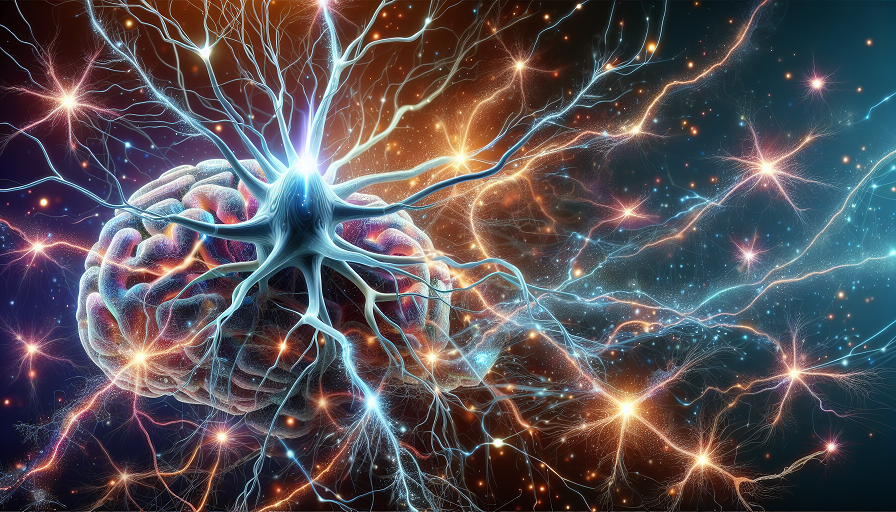
In today’s always-connected digital world, it can feel like our brains are constantly bouncing from one thought to the next. With every beep and buzz from our smartphones, our attention gets pulled in multiple directions, leaving little room for deep, focused thinking. But is it possible to carve out space for profound reflection while still engaging with the technology that seems to demand our constant attention?
Contents
How Technology Affects Our Ability to Focus
Technology has brought us countless benefits, making life more convenient and information more accessible. However, it comes with its own set of challenges, especially when it comes to mental focus. With notifications pinging all day long, our attention is in a constant state of flux. This can make it difficult to concentrate on a single task for an extended period. Science even supports this; studies show that frequent distractions can impair memory and reduce productivity.
Social media platforms and online communication also encourage a culture of multitasking. We often find ourselves scrolling through news feeds while simultaneously responding to messages or watching videos. Although we might feel productive, this habit can actually inhibit deep thinking and creative problem-solving. Our brains aren’t wired to effectively handle multiple streams of information at once, and this can lead to cognitive overload.
The Impact of Notifications and Alerts
Even when we’re not directly engaged with our devices, the anticipation of alerts can significantly impact our focus. These interruptions not only break concentration but also contribute to increased stress levels and decreased performance on tasks that require deep thought. Managing these disruptions is crucial for maintaining our ability to focus in a tech-heavy environment.
Strategies to Improve Focus in a Tech-Driven World
While it seems like technology might be an enemy to deep thinking, it doesn’t have to be. With mindful strategies, you can enjoy the benefits of technology while preserving your ability to focus deeply. Here’s how:
Set Boundaries with Technology
Creating clear boundaries for technology use can help reduce distractions. This could mean setting specific times to check social media or emails or using apps that limit screen time. By reducing your exposure to endless notifications, you give your brain the chance to engage in more meaningful, focused activities.
Prioritize Tasks and Break Them Down
One effective way to maintain focus is by prioritizing tasks and breaking them into manageable chunks. Focusing on one task at a time allows you to delve deeper into the subject matter, leading to better understanding and retention. Tools like to-do lists or task managers can assist in organizing tasks without becoming overwhelming.
Practice Mindfulness and Meditation
Mindfulness and meditation are powerful tools for improving concentration. They encourage being present in the moment, helping to reduce distractions and support clearer thinking. Even a few minutes of meditation each day can significantly enhance your ability to focus deeply.
Use Nootropics with Caution
As people aim to improve focus and cognitive function, nootropics or brain supplements have gained popularity. While some research suggests potential benefits in enhancing brain performance and supporting memory, it’s important to approach these supplements cautiously. Consulting a healthcare professional before trying nootropics ensures you use them safely and effectively.
Encouraging Deep Thinking in Everyday Life
Deep thinking isn’t just for moments of complex problem-solving; it can also be integrated into everyday life. Here are some ways to encourage deeper thought on a daily basis:
- Schedule Thinking Time: Dedicate specific time each day to step away from technology and engage in uninterrupted thinking. This could be as simple as taking a walk, writing in a journal, or simply sitting in silence.
- Read More: Reading books, especially those that challenge your perspective, can foster deeper thinking. It requires sustained attention and allows you to engage with complex ideas at your own pace.
- Ask Questions: Develop the habit of questioning assumptions and seeking to understand topics on a deeper level. This curiosity drives deeper engagement with whatever you are learning.
The Role of Digital Detoxes
One practical method of balancing tech and thought is through regular digital detoxes. These are intentional breaks from digital devices, allowing us to recharge mentally and foster deeper connections with the surrounding world. Even a short period spent unplugged can yield significant benefits, such as improved mood and increased productivity. Incorporating these breaks into our routine can help mitigate the negative impacts of constant connectivity.
The Future of Deep Thinking in a Tech-Driven World
The future presents both challenges and opportunities in maintaining the balance between technology and deep thinking. As advancements in artificial intelligence and machine learning continue, these technologies may offer new tools for enhancing our cognitive capabilities. Virtual reality, for example, holds potential for immersive educational experiences that can deepen understanding and retention of complex subjects.
However, as technology becomes increasingly sophisticated, the responsibility falls on individuals to make conscious choices about its use. By fostering digital literacy and critical thinking skills, we can navigate the digital landscape more effectively, ensuring technology serves as a tool for enrichment rather than a source of distraction.
Embracing Technology Mindfully
While it might seem that technology and deep thinking are at odds, they can coexist with mindful practices. By consciously deciding how and when to use technology, you can reap the benefits without sacrificing your ability to think deeply. The key is balance—ensuring technology serves as a tool to enhance, not hinder, your mental faculties.
Ultimately, the art of deep thinking is not lost—it just requires intentional effort and practice. By setting boundaries, prioritizing tasks, practicing mindfulness, and embracing technology mindfully, you can maintain your focus and access the profound reflections that lead to meaningful insights, creativity, and personal growth.

